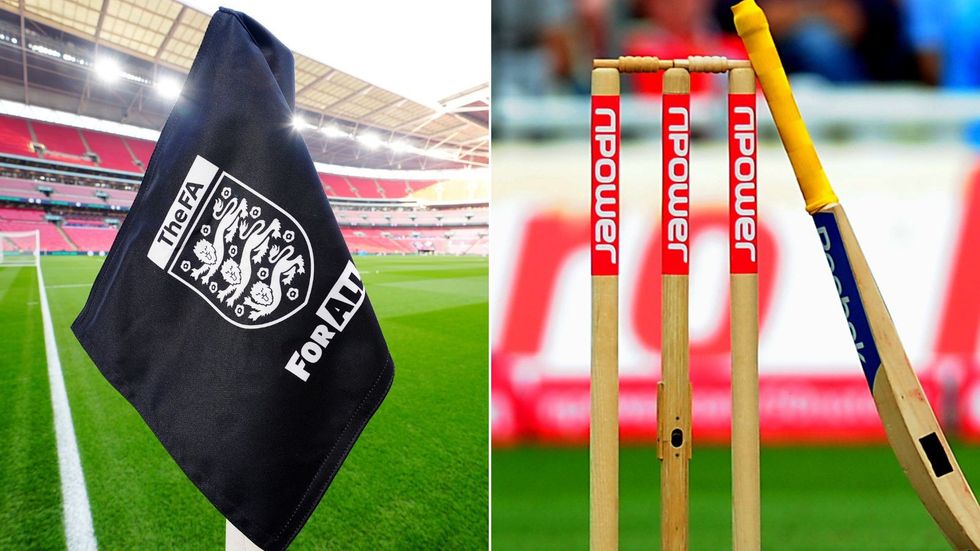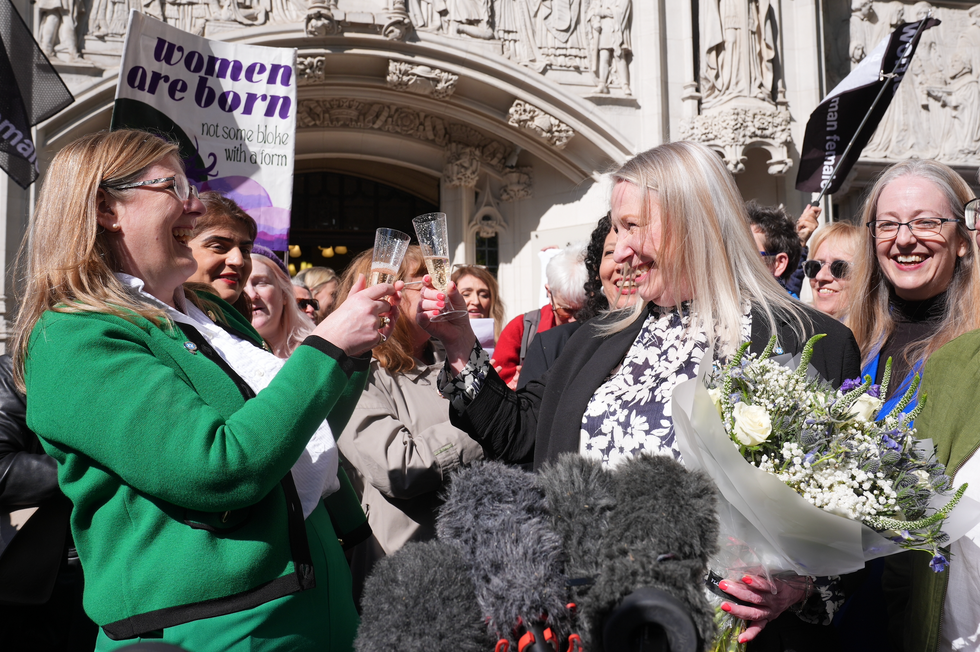WATCH NOW: “Flippin’ get in!” Gender-critical campaigner celebrates Supreme Court ruling on legal definition of ‘woman’
The Supreme Court have ruled that trans women are not women
Don't Miss
Most Read
Trending on GB News
Sports governing bodies like the Football Association and the England and Wales Cricket Board are facing potential legal challenges following the Supreme Court ruling that trans women are not women, according to reports.
The landmark decision has established that the legal definition of a woman is based on biological sex.
Campaigners have described this as a watershed moment for women's sports at all levels.
The ruling could force significant policy changes in football and cricket.

Sports governing bodies like the Football Association and the England and Wales Cricket Board are facing potential legal challenges following the Supreme Court ruling that trans women are not women
PA
Sharron Davies, the former Olympic swimmer, told the Telegraph: "I think heads need to roll in many sport national governing bodies who have worked against women deliberately."
She criticised the FA and ECB for being "atrocious to their female athletes, increasing their risk of injury and discriminating on the basis of sex, against all the science."
The Supreme Court unanimously ruled that the terms "woman" and "sex" in the Equality Act 2010 refer to biological women and biological sex.
The FA's updated policy, which came into force on April 1, stops short of banning trans women from the women's game.
JUST IN:Rory McIlroy's wife 'makes big decision on relationship' just days after golf star won the Masters
 Campaigners celebrated today's ruling outside the Supreme CourtPA
Campaigners celebrated today's ruling outside the Supreme CourtPAUnder these rules, transgender women can play in amateur women's competitions if they have had reduced testosterone levels for at least a year.
The FA reserves the right to intervene if it believes there are issues around safety or fairness of competition.
Sports scientist Ross Tucker described the rules as "shambolic" and "a shrine to cowardice, intellectual dishonesty and their attitude towards women's sport."
The ECB allows transgender women to play in tier three of the domestic structure and in recreational cricket.
READ MORE: Scottie Scheffler sets record straight on 'classless' decision after Rory McIlroy Masters victory
This policy has faced fierce criticism alongside other sporting bodies like Parkrun.
Davies vowed: "We still have battles to win and I will not rest until all sport at all levels has been returned to girls and women free of males."
Campaigners argue that football and cricket must now align with rugby union and hockey by restricting women's matches to those who were born female.
Sex Matters, a campaign group, confirmed the Supreme Court ruling has opened the door to potential lawsuits against football and cricket authorities from women athletes.
LATEST SPORTS NEWS:
The case-by-case approach used by the FA has been described as a "fallacy" which "women should reject outright" by campaigners.
Lord Hodge's confirmation that the Equality Act's definition of a woman is based on biological sex directly challenges current policies in several sports.
Campaigners who supported the Supreme Court challenge branded the judgment a "victory for biology, for common sense, for reality".
In November, the newspaper revealed a girl with suspected autism had been banned by her county FA after asking a transgender opponent: "Are you a man?"
 Sharron Davies has hailed 'biological sex' after the Supreme Court upheld the definition of a womanGB News
Sharron Davies has hailed 'biological sex' after the Supreme Court upheld the definition of a womanGB NewsThis punishment triggered protests against the FA's transgender policy before an England match at Wembley.
The results of an appeal in that case are thought to be still pending.
A UK Government spokesman said the ruling "brings clarity and confidence, for women and service providers such as hospitals, refuges, and sports clubs".
The equalities watchdog stated that a Gender Recognition Certificate does not change a person's legal sex for the purposes of the Equality Act.








